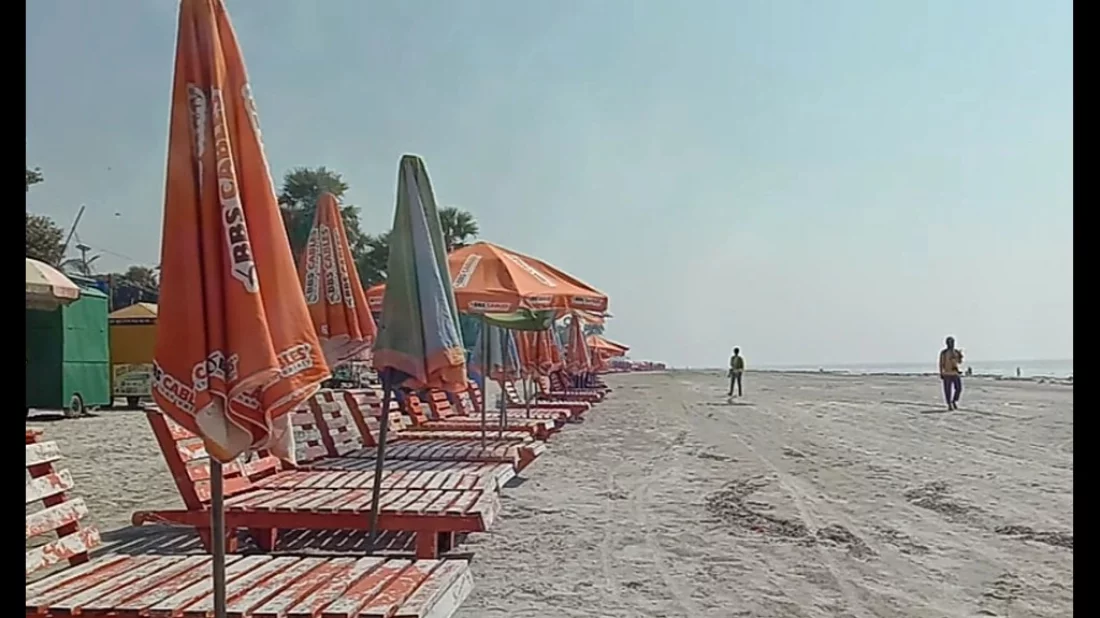
The country's tourism business peaks every November and December, with tourists from home and abroad in enormous numbers thronging tourist spots.
Unlike in the last two months of 2021, the tourist spots were almost deserted by tourists this November and December.
Intermittent blockades and hartals coupled with regular arsons since late October have led to this situation, say industry insiders, adding that the crisis in the tourism sector arises before every general election, which is held during the highest tourism season of the year.
Stakeholders demand the parliamentary election be held before or after the tourism season.
Ground reality
The country's most popular tourist destinations—Cox's Bazar and Saint Martin's Island—are almost tourist-free now.
As a result of the situation, hotels, motels, guesthouses, and cottages are almost empty. The adverse impact is also noticed in the local restaurants and transport.
The sufferings
Mohammad Ataul, a freelance photographer solely dependent on tourists coming to Cox's Bazar beach, said: "Despite the tourism debacle, I come here (to the beach) hoping to get some clients.
"But I'm forced to return home almost empty-handed. If the situation continues, it will be more difficult for people like me to feed our families."
Like Ataul, there are several such photographers, along with small vendors based on the beach, who are the worst sufferers.
No wonder low-income people like them in Kuakata are also reeling from the crisis.
Mannan Miah sells toys on the Kuakata beach. Aiming to make a healthy profit, he invested more in the peak tourism season.
"I bought toys from Dhaka and expected a better income. Instead, I'm finding it difficult to meet my family's daily demands," Mannan said.
Hotels and motel owners, too, are grappling
Due to the continued blockades and hartals, bookings in hotels, motels, cottages, and guesthouses are canceled.
Cox's Bazar Hotel, Motel, and Resort Owners' Association General Secretary Selim Newaz said the peak season starts in early November and continues until late February.
"The general elections are held either in December or in January. And the polls-centric violence begins at least a month before the voting. This time around, then violence started in November," he said.
As the election will be held in January, Nawaz suspects the existing crisis will continue in December.
Suggestions
If there is political stability, no election can cause such issues, the hotelier said.
"But political unrest is leading us to incur heavy losses as tourists are cancelling their trips," he said.
Kalatali-Marine Drive Hotel-Motel Owners Association General Secretary Moukhim Khan said: "Owing to the continued blockades and strikes, the tourism sector in Cox's Bazar suffered losses worth crores of taka."
A staggering 250,000 people are involved in the sector for winning bread, according to Moukhuim, who demanded that the sector be kept out of the purview of any political programs.
Shiblul Azam Quraishi, president of the Tour Operators Association of Bangladesh (Toab), said that any crisis in the country hits the country's tourism sector first.
"During the first two years of the Covid-19 pandemic, the sector suffered a lot. And when we're all set to recoup the losses, here comes the political unrest," Quraishi said.
"The general election is always scheduled during the peak tourist season. If this trend continues, it will be tough for the sector to have a sustainable business involving it," he said.
And, in the absence of a friendly business environment, foreign investment will get squeezed, the Toab leader concluded.
Bangladesh Tourism Board CEO Abu Taher Muhammad Jaber said security is an essential tool for smooth tourism.
"If tourists can't roam freely, nobody will make trips or outings." We're in touch with the tourist police to ensure security for all tourists. Additionally, we've requested local administration to help in this regard," Taher said.
The tourism board official hopes that political parties will be more sincere in ensuring political stability.
Bangladesh has targeted attracting 10 million tourists and generating $8 billion by 2041.











